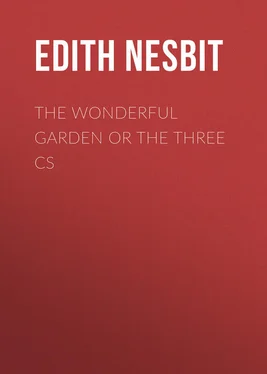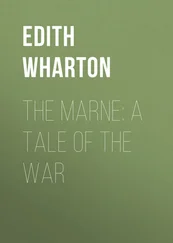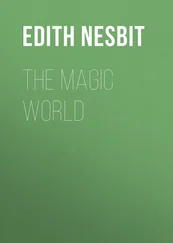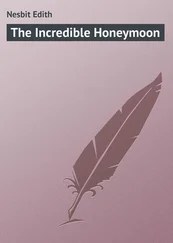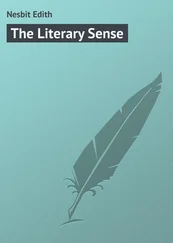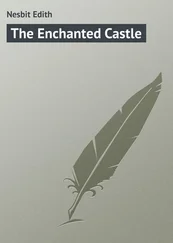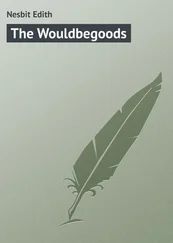Edith Nesbit - The Wonderful Garden or The Three Cs
Здесь есть возможность читать онлайн «Edith Nesbit - The Wonderful Garden or The Three Cs» — ознакомительный отрывок электронной книги совершенно бесплатно, а после прочтения отрывка купить полную версию. В некоторых случаях можно слушать аудио, скачать через торрент в формате fb2 и присутствует краткое содержание. ISBN: , Жанр: foreign_prose, на английском языке. Описание произведения, (предисловие) а так же отзывы посетителей доступны на портале библиотеки ЛибКат.
- Название:The Wonderful Garden or The Three Cs
- Автор:
- Жанр:
- Год:неизвестен
- ISBN:http://www.gutenberg.org/ebooks/52907
- Рейтинг книги:5 / 5. Голосов: 1
-
Избранное:Добавить в избранное
- Отзывы:
-
Ваша оценка:
- 100
- 1
- 2
- 3
- 4
- 5
The Wonderful Garden or The Three Cs: краткое содержание, описание и аннотация
Предлагаем к чтению аннотацию, описание, краткое содержание или предисловие (зависит от того, что написал сам автор книги «The Wonderful Garden or The Three Cs»). Если вы не нашли необходимую информацию о книге — напишите в комментариях, мы постараемся отыскать её.
The Wonderful Garden or The Three Cs — читать онлайн ознакомительный отрывок
Ниже представлен текст книги, разбитый по страницам. Система сохранения места последней прочитанной страницы, позволяет с удобством читать онлайн бесплатно книгу «The Wonderful Garden or The Three Cs», без необходимости каждый раз заново искать на чём Вы остановились. Поставьте закладку, и сможете в любой момент перейти на страницу, на которой закончили чтение.
Интервал:
Закладка:
And then the boy who was driving the luggage cart got down and opened a gate; and they drove through and along a woodland road where ferns and blossoming brambles grew under trees very green and not dusty at all.
From the wood they came to a smooth, green, grassy park dotted with trees, and in the middle of it, standing in a half-circle of chestnuts and sycamores, was the house.
It was a white, bow-windowed house, with a balcony at one end, and a porch, with white pillars and two broad steps; and the grass grew right up to the very doorsteps, which is unusual and very pretty. There was not a flower to be seen – only grass. The waggonette, of course, kept to the drive, which ran round to a side door – half glass.
And here Mrs. Wilmington the housekeeper received them. She was a pale, thin person – quite kind, but not at all friendly.
‘I don’t think she has time to think of anything but being ladylike,’ said Charlotte. ‘She ought to wear mittens.’
This was while they were washing their hands for tea.
‘I suppose if you’re a housekeeper you have to be careful people don’t think you’re a servant,’ said Caroline. ‘What drivel it is! I say, isn’t this something like?’
She was looking out of the bow window of the big room spread with a blue rose-patterned carpet, at the green glory of the park, lying in the sun like another and much more beautiful carpet with a pattern of trees on it.
Then they went down to tea. Such a house – full of beautiful things! But the children hadn’t time to look at them then, and I haven’t time to tell you about them now.
I will only say that the dining-room was perfect in its Turkey-carpet-and-mahogany comfort, and that it had red curtains.
‘Will you please pour the tea, Miss Caroline?’ said Mrs. Wilmington, and went away.
‘I’m glad we haven’t got to have tea with her , anyway,’ said Charles.
And then Uncle Charles came in. He was not at all what they expected. He could not have been what anybody expected. He was more shadowy than you would think anybody could be. He was more like a lightly printed photograph from an insufficiently exposed and imperfectly developed negative than anything else I can think of. He was as thin and pale as Mrs. Wilmington, but there was nothing hard or bony about him. He was soft as a shadow – his voice, his hand, his eyes.
‘And what are your names?’ he said, when he had shaken hands all round.
Caroline told him, and Charles added:
‘How funny of you not to know, uncle, when we’re all named after you!’
‘Caroline, Charles, Charlotte,’ he repeated. ‘Yes, I suppose you are. I like my tea very weak, please, with plenty of milk and no sugar.’
Caroline nervously clattered among the silver and china. She was not used to pouring out real tea for long-estranged uncles.
‘I hope you will enjoy yourselves here,’ said Uncle Charles, taking his cup; ‘and excuse me if I do not always join you at meals. I am engaged on a work – I mean I am writing a book,’ he told them.
‘What fun!’ said every one but Caroline, who had just burnt herself with the urn; and Charles added:
‘What’s it about?’
‘Magic,’ said the Uncle, ‘or, rather, a branch of magic. I thought of calling it “A Brief Consideration of the Psychological and Physiological Part played by Suggestion in So-called Magic.”’
‘It sounds interesting; at least I know it would if I knew anything about it,’ said Caroline, trying to be both truthful and polite.
‘It’s very long,’ said Charles. ‘How would you get all that printed on the book’s back?’
‘And don’t say “so-called,”’ said Charlotte. ‘It looks as if you didn’t believe in magic.’
‘If people thought I believed in magic they wouldn’t read my books,’ said Uncle Charles. ‘They’d think I was mad, you know.’
‘But why?’ Charlotte asked. ‘ We aren’t mad, and we believe in it. Do you know any spells, uncle? We want awfully to try a spell. It’s the dream of our life. It is, really.’
The ghost of a smile moved the oyster-shell-coloured face of Uncle Charles.
‘So you take an interest in magic?’ he said. ‘We shall have at least that in common.’
‘Of course we do. Every one does, only they’re afraid to say so. Even servants do. They tell fortunes and dreams. Did you ever read about the Amulet, or the Phœnix, or the Words of Power? Bread and butter, please,’ said Charles.
‘You have evidently got up the subject,’ said Uncle Charles. ‘Who told you about Words of Power?’
‘It’s in The Amulet ,’ said Charlotte. ‘I say, uncle, do tell us some spells.’
‘Ah!’ Uncle Charles sighed. ‘I am afraid the day of spells has gone by – except, perhaps, for people of your age. She could have told you spells enough – if all the stories of her are true.’
He pointed to a picture over the mantelpiece – a fair-haired, dark-eyed lady in a ruff.
‘She was an ancestress of ours,’ he said; ‘she was wonderfully learned.’
‘What became of her?’ Charlotte asked.
‘They burned her for a witch. It is sometimes a mistake to know too much,’ said the Uncle.
This contrasted agreeably with remembered remarks of Uncle Percival and Aunt Emmeline, such as ‘Knowledge is power’ and ‘There is no darkness but ignorance.’
The children looked at the lady in the white ruff and black velvet dress, and they liked her face.
‘What a shame!’ they said.
‘Yes,’ said the Uncle. ‘You see she’s resting her hand on two books. There’s a tradition that those books contain her magic secret. I used to look for the books when I was young, but I never found them – I never found them.’ He sighed again.
‘ We’ll look, uncle,’ said Charlotte eagerly. ‘We may look, mayn’t we? Young heads are better than old shoulders, aren’t they? At least, that sounds rude, but you know I mean two heads are better than yours – No, that’s not it. Too many cooks spoil the – No, that’s not it either. We wouldn’t spoil anything. Too many hands make light work. That’s what I meant.’
‘Your meaning was plain from the first,’ said the Uncle, finishing his tea and setting down his cup – a beautiful red and blue and gold one – very different from Aunt Emmeline’s white crockery. ‘Certainly you may look. But you’ll respect the field of your search.’
‘Uncle,’ said Caroline, from behind the silver tea-tray, ‘your house is the most lovely, splendid, glorious, beautiful house we’ve ever seen, and – ’
‘We wouldn’t hurt a hair of its head,’ said Charles.
Again the Uncle smiled. ‘Well, well,’ he said, and faded away like a shadow.
‘We’ll find those books or perish,’ said Charlotte firmly.
‘Ra- ther ,’ said Charles.
‘We’ll look for them, anyway,’ said Caroline. ‘Now let’s go and pick an ivy leaf and put it in a letter for poor dear Aunt Emmeline. I’ll tell you something.’
‘Well?’ said the others.
‘This is the sort of house I’ve always dreamed of when it said luxury – in books, you know.’
‘Me too,’ said Charlotte.
‘ And me,’ said Charles.
CHAPTER III
THE WONDERFUL GARDEN
It was very glorious to wake up the next morning in enormous soft beds – four-posted, with many-folded silk hangings, and shiny furniture that reflected the sunlight as dark mirrors might do. And breakfast was nice, with different sorts of things to eat, in silver dishes with spirit-lamps under them, – bacon and sausages and scrambled eggs, and as much toast and marmalade as you wanted; not just porridge and apples, as at Aunt Emmeline’s. There were tea and coffee and hot milk. They all chose hot milk.
Читать дальшеИнтервал:
Закладка:
Похожие книги на «The Wonderful Garden or The Three Cs»
Представляем Вашему вниманию похожие книги на «The Wonderful Garden or The Three Cs» списком для выбора. Мы отобрали схожую по названию и смыслу литературу в надежде предоставить читателям больше вариантов отыскать новые, интересные, ещё непрочитанные произведения.
Обсуждение, отзывы о книге «The Wonderful Garden or The Three Cs» и просто собственные мнения читателей. Оставьте ваши комментарии, напишите, что Вы думаете о произведении, его смысле или главных героях. Укажите что конкретно понравилось, а что нет, и почему Вы так считаете.
